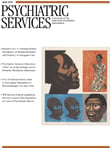Family Psychoeducation for Serious Mental Illness
Deinstitutionalization was the historic act of releasing patients from large mental institutions. As a result, patients who had spent long years in institutional care were catapulted into unfamiliar environments. Caregivers had little knowledge of how to meet the needs of their relatives with mental illness and did not know how to cope with symptomatic behaviors. In addition, clinicians with "old-school" training held on to attitudes about family causation of serious mental illness, along with ignorance of family burden. Clinicians' refusal to give information to caregivers or involve them in treatment planning inadvertently increased the caretakers' burdens.
Although many mental health professionals are conscious of the importance of social framework for recovery from mental illness, this book's central message—"the importance of educating families, friends, and all others concerned with the welfare of persons with serious mental illness"—is very useful. The book focuses on family psychoeducation. It describes effects of family interventions on persons with serious mental illness and addresses interactions with mental health professionals.
The author, Harriet P. Lefley, has a long-standing interest in family psychoeducation. This book draws on that experience and on the body of research on the topic that clearly shows that family psychoeducation results in a significant and sustained reduction in patients' relapse and rehospitalization rates, as well as in improvements in families' well-being.
The book touches on various subjects associated with family psychoeducation in its 13 chapters. Starting with operational definitions, the author then describes several models of family intervention. The author then lays out the historical background that led to the development of family psychoeducation, together with theories of family culpability. The large body of research on expressed emotion marked the beginning of changes in mental health systems in this area, ultimately leading to the development of family psychoeducation. The theoretical premises underlying family psychoeducation and overviews of the large body of research that support its efficacy are then presented. The author describes how family psychoeducation can be adapted for other interventions, for example as a prodromal intervention for children and adolescents with a diagnosis of serious emotional disturbance. The text examines the application of family psychoeducation to a variety of other diagnoses and other family relationships and offers suggestions for further research.
Family psychoeducation is increasingly being applied in many countries and is proving useful in multiple cultural contexts. However, the author poses and ponders "questions of optimal length of interventions and the need for, and form of cultural adaptation." Family education, training issues, and implementation through services are also discussed.
There is a relatively low degree of adopting family psychoeducation in clinical services—a result of several factors that the author describes. It is especially true that family psychoeducation can be slow to gain a foothold in emerging countries such as my own, Albania. However, "the vast majority of studies of family psychoeducation [have] shown impressive effects," thus arguing for more widespread adoption and adaptation of the intervention.
Written in a clear and engaging style and backed up by extensive references, this book will certainly prove valuable to mental health professionals who deal with their patients' everyday efforts toward recovery and reintegration into the community.
The reviewer reports no competing interests.



